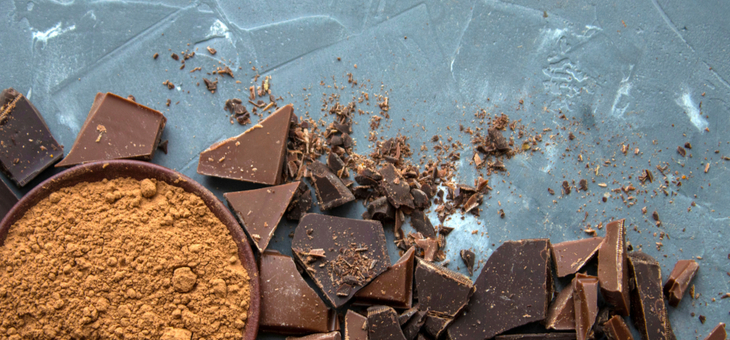Leading chocolate makers must do more to reduce links between their products and child slavery, says Macquarie University.
Professor John Dumay, from Macquarie Business School, says chocolate producers including Nestle, Hershey, Mondelez (Cadbury) and Mars buy cocoa from Ivory Coast, the world’s largest cocoa producer, where the abhorrent practices are “endemic”.
“Nestle and the other industry players have not resolved the issue,” says Prof. Dumay.
“These children work long hours in dangerous environments, carrying heavy loads, exposed to agro-chemicals, clearing land, and using sharp tools.
“They are overstating good news and understating bad news.”
Macquarie is using the festive season to highlight the issue.
“It’s up to the consumer to make a behaviour change and decide whether they want to support unethical practices.
“Personally, I have gone off chocolate produced by the big companies altogether since writing this report.”
Prof. Dumay refers concerned chocolate lovers to the list of ethical manufacturers on the slavefreechocolate.org list. Click here.
He co-authored a paper with an international team that analysed how Nestle manages public perceptions.
“It is intriguing that Nestle can operate in the Ivory Coast with openly admitted ethical issues in its cocoa supply chain while simultaneously winning Corporate Social Responsibility awards,” the authors say in the paper published in Critical Perspectives in Accounting.
“During our research, we found that the majority of mentions of Nestle in the media were initiated by the company itself and that it appears to have influenced journalists for favourable press,” Prof. Dumay says.
On 1 December, AFP reported that chocolate giant Hershey had been accused of avoiding paying a bonus that helps boost poor cocoa farmers’ incomes.
West African nations Ghana and Ivory Coast, which produce 70 per cent of the world’s cocoa, accused the companies of not paying the living income differential (LID).
“The LID gives a bonus of $400 per tonne of cocoa in addition to the market price and is intended to better remunerate cocoa farmers, many of whom live in poverty.”
The nations said they had “been left with no choice but to cancel all sustainability programs with which your company is involved”.
The schemes certify that the chocolate is ethically produced, allowing firms to sell it at higher prices. Production must avoid deforestation and be free of child labour.
In a statement to AFP, Hershey’s said countries had distributed a misleading statement jeopardising “critical programs that directly benefit cocoa farmers”.
By 4 November, it appeared Hershey’s had reached an agreement with Ivory Coast that it would buy beans directly from farmers and pay the LID.
Concurrently, ice cream company Ben and Jerry’s committed to the LID.
“Typically, farmers are paid by giant food manufacturers and traders at the behest of the global commodity market, a price that does not factor in the cost of production, and leaves smallholder farmers in extreme poverty,” Forbes reported.
“As a part of their commitment, 5000 cocoa farmers in the Ivory Coast will receive an additional premium.”
Activists and investigative journalists have highlighted child labour violations in the chocolate industry since 2000, NBC reports.
A 2018 report found that more than 1.6 million children, or nearly 45 per cent of children living in agricultural households, worked in cocoa fields in Ivory Coast and Ghana.
In 2019, the Harkin-Engel Protocol was created to ensure that production of cocoa beans and chocolate followed international labour standards. The protocol laid out timelines for chocolate companies to follow the standards. Eight chocolate companies, including Hershey, signed it, and agreed to follow the timelines. Deadlines were extended this year.
Laws have been introduced in the US and Australia aimed at ensuring companies avoid slavery in the making of their products.
Hershey Co. claims it had its suppliers adopt its child labour monitoring and remediation system which tracked 69,988 children in Ghana and Ivory Coast.
Nestle says it introduced a Child Labour Monitoring and Remediation System in 2012, and it has identified 80,000 children at risk and helped half of them access education.
Despite such endeavours, the situation is still disturbing.
“More than two million children under the age of 15 years old work in the cocoa industry in Ivory Coast and Ghana …” Macquarie says.
“Many are the children of farm labourers, but others are also sold to farms as bonded labourers from neighbouring Burkina Faso and Mali.”
Kristy Leissle, the author of Cocoa and a co-founder of the Cocoapreneurship Institute of Ghana, wants to applaud and encourage beneficial programs. But she knows change doesn’t come easily.
“It’s about an old industry. There’s a lot that’s entrenched about it, including child labour, including poverty,” Ms Leissle said.
“The LID was put into place to correct a long-term injustice.”
Do you make buying decisions based on issues such as slavery? Were you aware of this tragedy in the cocoa supply chain?
If you enjoy our content, don’t keep it to yourself. Share our free eNews with your friends and encourage them to sign up.
Related articles:
https://www.yourlifechoices.com.au/government/federal-government/was-there-slavery-in-australia
https://www.yourlifechoices.com.au/travel/the-dark-side-of-tourism
https://www.yourlifechoices.com.au/finance/news-finance/are-older-aussies-better-prepared

